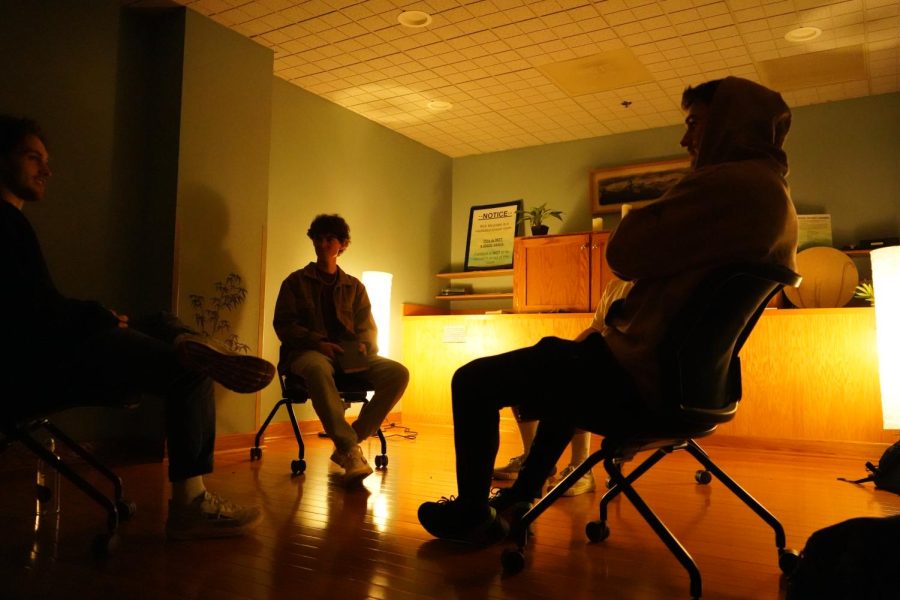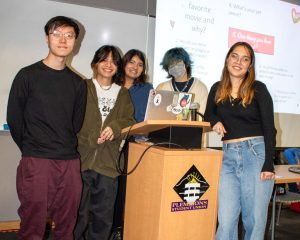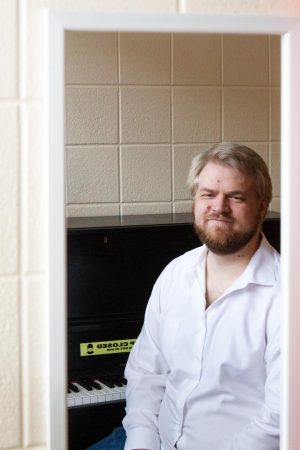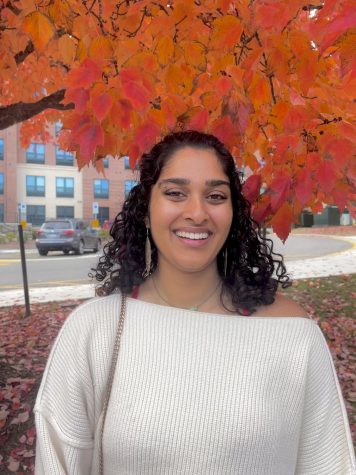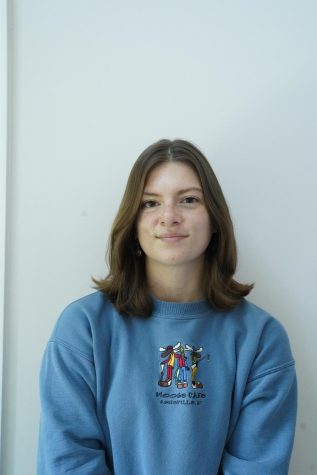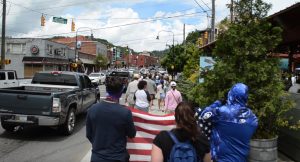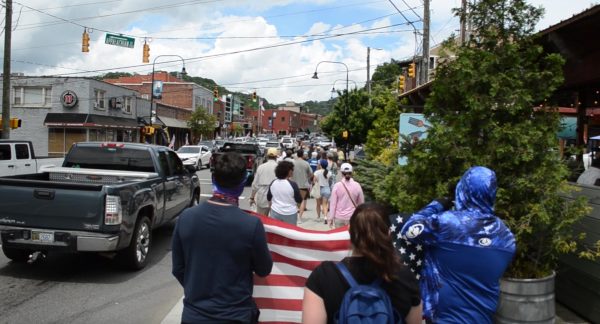Muslims at App State navigate Ramadan
Students convene in Plemmons Student Union Rich Mountain room, a space where students are free to practice meditation and/or prayer, Feb. 16, 2023.
March 8, 2023
Traditional foods and holiday spirit come together during the month of Ramadan, during which Muslims across the world fast from sunrise to sunset to commemorate the revelation of the Quran. Boone’s corner of the world holds its own celebrations, but not without difficulties unique to Muslims living in the High Country.
Muslims on campus face a shortage of prayer spaces and acceptable foods at acceptable times, a particularly relevant issue during the upcoming month of Ramadan from March 22 to April 20.
Mealtimes specific to Ramadan often take place outside of the regular hours of campus dining locations. Suhoor is the morning meal eaten before the fast begins at sunrise and iftar is the evening meal eaten after the sun has begun to set and Maghrib prayers have commenced. Both are often much earlier or later than regular mealtimes.
Past experiences with Campus Dining have left Muslim students’ needs unaccounted for. Sophomore political science major Amarah Din recounts multiple times where bacon was in her sandwiches at the Carving Board after she specified wanting no bacon and often realized the error after she had begun to eat her sandwich. She approached Campus Dining at the time of the issue with a request for special training to ensure employees knew how to deal with allergies and religious dietary restrictions.
While Campus Dining assured her a training would be implemented to prevent future instances of the event, no follow up on such changes was ever given, Din said.
Din also accompanied other students who approached the Director of Campus Dining, Elizabeth Riede and Executive Chef Jules Bott with concerns about a lack of halal, or religiously permissible, meat options and the use of alcohol when cooking certain dishes.
“Especially those invisible ingredients like gelatin, or lard, or things like that, I worry about that, and alcohol, and whatever’s in any of our food. It’s hard to know exactly what’s in it,” Din said.
After multiple meetings with various Muslim students and allies, a take home meal option has been established by Campus Dining to all students holding a meal plan, Riede said. This will allow students to bring home meals for suhoor and any other mealtime during which dining halls will be closed. The takeaway option will be available to students from March 22 at 4 p.m. to April 22 at 4 p.m..
“Students will be able to sign up for them on the Campus Dining website,” Riede said. “Campus Dining is also partnering with a guest chef, Farid Ahmed, to advise on dining options for Ramadan, and we will have more information to share next month.”
Students created a Google Form available to both Muslim students and allies who wanted to express their desire for halal meats in the dining hall. It includes questions on what dishes students would like to see served for various important meals such as suhoor, iftar and eid celebrations.
With such options on the table after meetings had been conducted, and with the addition of the survey responses to bolster their cause, the students “left feeling really happy, like it was going somewhere,” Din said.
The communal nature of Ramadan has not been lost in the High Country. Organizations such as the Islamic Center of Boone and the Muslim Student Association provide spaces for students to support one another during Ramadan fasts, pray in groups and break their fasts in a community setting.
The Islamic Center of Boone, which opened July 2022, holds Jummah prayers every Friday, a day considered sacred in Islam. They also offer lessons on Islamic topics including prayer, Quran study, and wudu, an ablution performed before prayer.
Such classes are offered occasionally to students and anyone new to or curious about the religion. Classes are potentially going to be offered more regularly, said Aladdin Fouad, a member of the community.
MSA president and junior art history major Hammad Chaudhry previously had to rent a prayer space on campus, which was often time-consuming and the spaces weren’t guaranteed, professor of biology Khadija Fouad said.
“Now we have a central place to gather. For example, Hammad is having an MSA general body meeting there,” Khadija Fouad said. “It’s a headache for him to organize on campus.”
On-campus prayer spaces are limited to a prayer room on the third floor of Plemmons Student Union in the Rich Mountain Meditation room 302. However, the room is multipurpose, which leaves no guarantee that it is being maintained to the standard appropriate for prayer. Additionally, the reservations may be pending for up to three days, which is an obstacle during the month-long observance of Ramadan.
MSA meetings are held after Friday prayers as a space for Muslim students to meet and familiarize themselves with one another, Chaudhry said.
“People didn’t really know each other but then they wanted to do things for Ramadan together, to have some communal event,” Chaudry said. “I saw the birth of that and I’m really lucky to be a part of that, where people come together for a common goal and it’s open for everybody and it’s just a tight knit family here.”
The MSA has previously hosted community iftars open to all students, with occasional potlucks often hosted by the Islamic Center with no entry fee for students.
In addition to these organizations is a club dedicated to South Asian students on the horizon. While mainly focused on uniting South Asian students regardless of religion, the club, co-founded by freshman cellular/molecular biology major Umamah Quadri and junior physics major Sabina Gomes, will host meetings for South Asian students regardless of background or religion. They hope these meetings will also provide Muslims with a space of relatability over Ramadan.
“That’s the main thing, we’re trying to make something where all the South Asians from different cultures, even if they’re from different religions, they have a common ground, and they have a common place to feel safe,” Gomes said.
Editor’s Note: A prior version of this story contained incorrect dates from the Campus Dining schedule. Those dates have been changed in the story.

